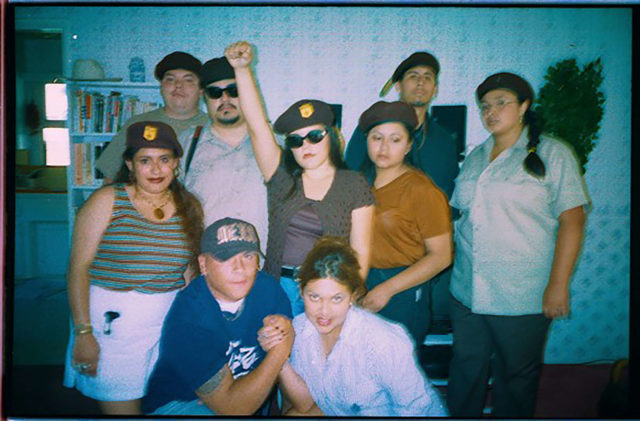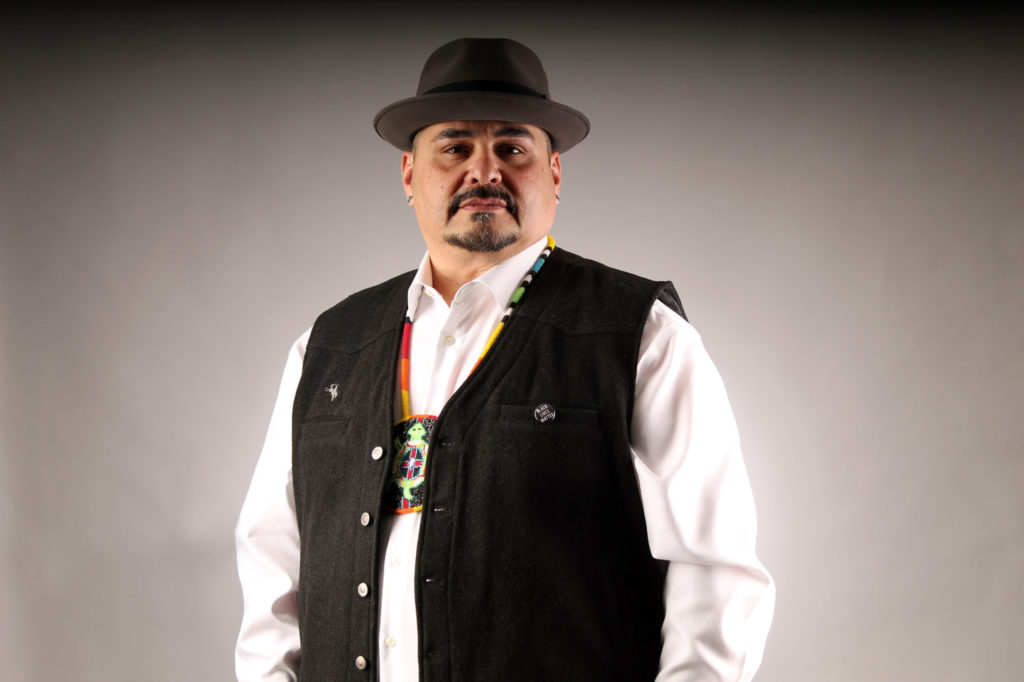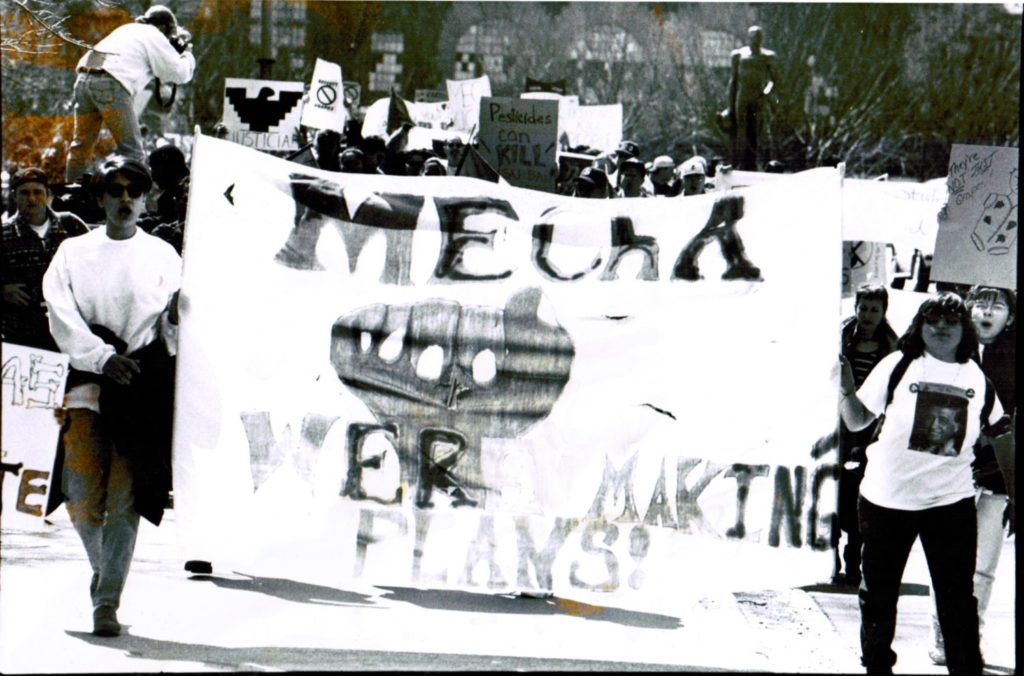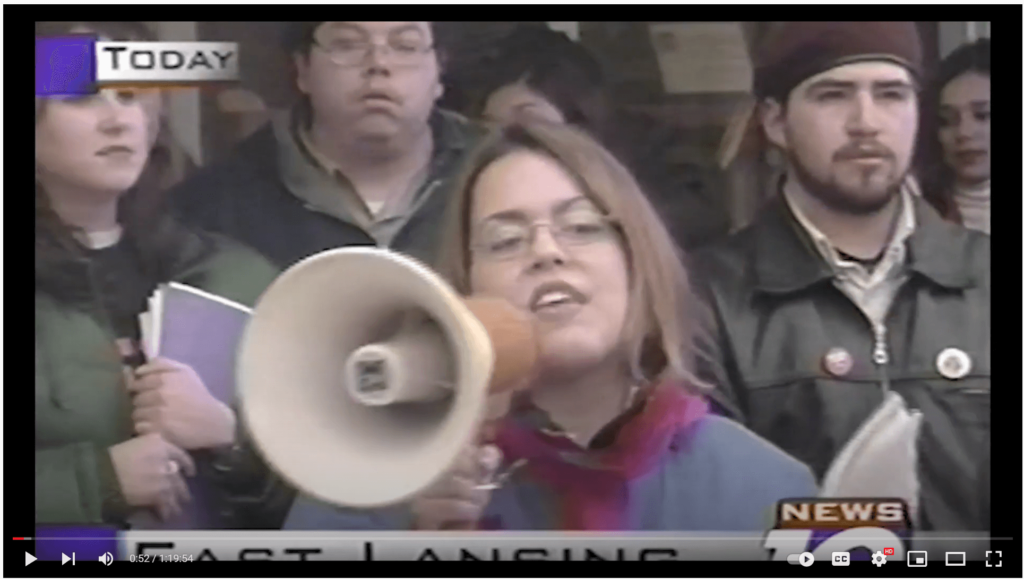
Keeping ethnic studies programs alive is a crucial part of providing spaces in higher academics that speak to diverse experiences and welcome marginalized students, but first they have to be created. “War of the Flea: The Fight for Xicano Studies” will be screening at Edgewood College on Wednesday, Nov. 2, with the hope it will provide people with a story that will lead them to engage in the history and necessity of ethnic studies programs. Dr. Ernesto Mireles is one of the student activists in the film that follows Chicana and Chicano students at Michigan State University in the 1990s as they fought to both establish and fund a Chicano/Latino Studies program at the school.
“They’re the comrades of my youth, so I made this movie because the story is important to tell,” Mireles told Madison365. “As Chicanos and as brown people in the United States, we have a history that is completely disregarded. Our history within this colonial settler system is really a history of resistance to power, to hegemony, and to 500 years of religious, socio-economic, and political oppression. It’s important for us to be able to document that. We have stories that need to be told, and it’s our responsibility to tell those stories.”
Having control of the story and narrative is a key component of ethnic studies programs for the sake of the students in them and the often marginalized people as the focus of the field. Movements such as the fight Dr. Mireles and his fellow student activists took to MSU ensured academic spaces where students of color could go to learn their own history and combat harmful versions of history that often erase or undermine them.

“It is important to keep in mind that when we begin to have conversations that center around Chicano studies, Native American studies, and African American studies, what we’re doing is challenging a prevailing common sense about who we are as citizens of the United States,’ Mireles said. “Challenging that the benefit of being a citizen, for the most part, goes to people who are not us.”
By engaging with these untold and unheard stories and experiences, it can be enlightening for both today and for the time of those ancestral peoples who struggled against mistreatment and erasure. When it comes to Chicano and Chicana experience and identity, Dr. Mireles was sure that there is plenty more to be explored and many connections to be drawn to the present.
“The reality is that colonized people, as descendants of indigenous people, do have a history,” explained Mireles. “Even more than that, in many ways, we’re held hostage to history. We look around us and we see the centuries-long subjugation and the removal of ourselves from any sort of idea of ownership to the land. Even to the extent that our people now are put in prison, and they’re rounded up as criminals for entering land that their ancestors traversed freely for thousands of years. These types of capricious borders are the types that we challenge through these programs. The very idea of our belonging is also one that is upheld, as we think about how to un-hostage ourselves to history.”
In fact, simply having these spaces can determine the success of some students as ethnic studies departments can often provide a home for academics looking to get in touch with their roots. The Chicana and Chicano student activists at MSU in the ’90s are exemplary of how change can be made when students are passionate about an area of study, even if it is not paid its fair attention by the administration.
“When we arrive at these spaces of historical accuracy, if there is such a thing really, we arrive at these spaces and we understand that we are not alone,” Mireles said. “We act within a continuum of people and that continuum of people is set on remembering. Not just remembering, acting on that remembrance and pushing towards the future and making future history.”

Distinction is also an important aspect of incorporating these programs as it can often leave much to be desired when areas of study have too far of a reach and group people with unique histories and cultures together. While Latino studies as a field is also important, the fight to recognize the specific experience and lack of attention to the distinct history and cultural expressions of Mexican American peoples is what led Dr. Mireles and his companions to specifically focus on Chicano studies.
“There are 42 million Mexican Americans that live in the United States,” said Mireles. “That’s an overwhelming number, right? I think that’s the first thing to keep in mind. When we talk about Chicano Studies, we’re talking about the largest demographic of so-called ‘Latinos’ in the United States. The other thing is, from my vantage point, that the word Latino is a word that really came into use during the French occupation of Mexico and it was a PSYOPS on Mexicans. The French were trying to get them to think of themselves as white with Latin-based language in an attempt to stop opposition.
“I think the other thing that has become important about Chicana/Chicano/Chicanx studies in the United States, is that it has very much turned over the last 50 years towards an exploration of indigeneity and indigenous identity,” Mireles continued. “For most Mexican Americans genetically, not that that makes any difference, because I don’t think that it does, but genetically and culturally, we’re descendants of Mesoamerican culture.”
Recalling the lives and conditions of our ancestors is an important practice for many people of all identities. However, it takes a movement like that seen in “War of the Flea” to establish that remembrance as one worth ingraining into higher academics. The most powerful piece of the movement is that it resulted in a real, lasting change.

“Student movements don’t actually succeed that often, but we did,” Mireles recalled. “We won, and I think that’s what makes it a little bit different. What I’m hoping people will be able to see is that it’s possible to win … I’m hoping that what that does is start a conversation about what it means to be strategic in campaigns, and what it means to be strategic on campus. And what it means to be strategic in the way that we work with the community.”
Dr. Mireles pressed even further on the importance of community and bringing people together through collaboration, especially when gaps in access and education can often create rifts in understanding. In that same vein, Dr. Mireles also had a word of thanks for Madison Latino community leader Oscar Mireles (no relation), executive director at Latinos Organizing for Understanding and Development (LOUD), who facilitated this screening and does the community activism work that goes hand-in-hand with student activism. Dr. Ernesto Mireles shared his excitement and looks forward to meeting attendees for a screening that he is sure will leave people impressed.
“It is a David and Goliath story,” Mireles assured. “It is kind of a wonder in a lot of ways that these young Chicanos and Chicanas who were just barely out of high school fought this giant university to a standstill, and were able to win. There’s twists and turns along the way. It’s a good story. When you get to the end, you’ll be like, ‘Hell yeah.’ I promise you when you get to the end, you will want to stand up and scream.”
To find out more about the War of the Flea and Dr. Mireles, check out the film website here. To check out more on the LOUD organization, check out their website here.



























